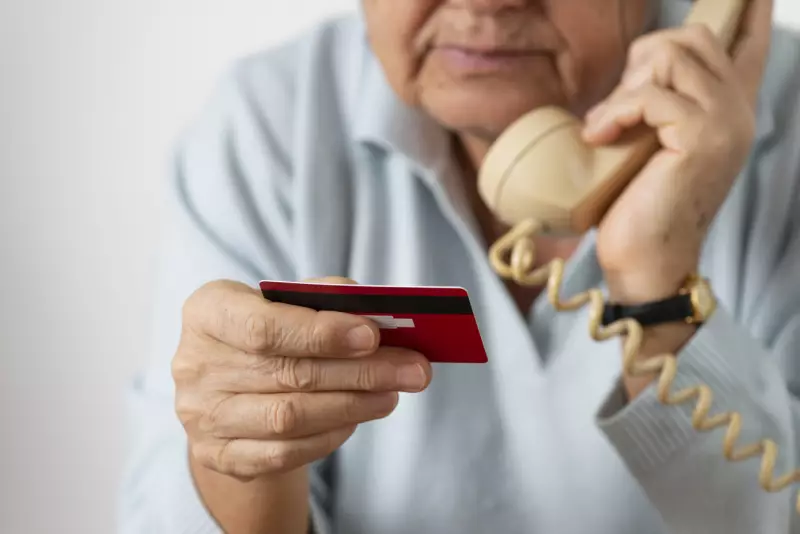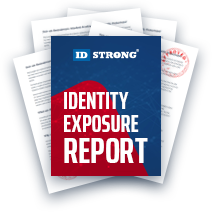How to Prevent Data Loss from a Phone Scam
Table of Contents
- Understanding the Basics of a Phone Scam
- Don’t Give Out Personal Information Over the Phone
- Don’t Install Apps You Don’t Know or Trust
- Check Your Accounts Regularly to Make Sure Nothing is Missing
- Stay Informed and Know the Warning Signs of a Scam
- Data Loss from a Phone Scam
- Learn How to Report Phone Scams
- By Bree Ann Russ
- Published: Aug 12, 2022
- Last Updated: Aug 16, 2022

When you think of scams, you probably think of them as someone trying to trick you out of money. While data loss is typically not the primary goal of a scam, it can be the outcome. This is especially the case with telephone scammers who see ways to get personal information or digital assets from their victims. If you know what to look for and how to protect your digital information, you can prevent data loss from a phone scam.
Scammers find targets by identifying people who are more likely to give up private information than others. For example, hang up if someone calls you and pretends to be from your credit union or another financial institution. If they ask for personal information like passwords or account numbers that they should already have access to as a representative of your bank or credit union, hang up again. You can't trust these callers. Here are other tips to help prevent a data loss event that could follow a telephone scam.
Understanding the Basics of a Phone Scam
A telephone scam attempts to trick someone into giving up money or personal information. Sometimes, scammers will use the telephone because it's a quick and inexpensive way to reach a lot of people in a short time.
They might also do it because they can use a computer program to “spoof” the number they are calling from to make it look like they are coming from a different source. Spoofing makes it harder to track these scammers down.
A phone scam aims to get you to hand over your cash, credit card information, or login credentials for your online accounts, including email and social media sites. Unfortunately, one common side effect is the loss of phone data.
Don’t Give Out Personal Information Over the Phone
If someone calls you and asks for your credit card number, social security number, or login credentials to your online accounts, you need to hang up immediately. No legitimate company will ask you for this information over the phone.
If someone asks you for this information and you feel uncomfortable giving it to them, do not give it to them. Don't ignore these calls either. Instead, protect yourself immediately.
If you feel comfortable or believe the call is legitimate, hang up and call the company from which the caller said they were calling. Let someone know the call is happening and what the caller said.
If the call is legitimate, the company can connect you with the department internally so you can provide the information they need. If the call was not legitimate, then the company knows and can take steps to protect their customers' data.
Don’t Install Apps You Don’t Know or Trust
Should someone call you about an app, don't download it, especially if they are pressuring you. Don't download any apps from an unknown source, even if an acquaintance or a family member insists that you do.
These apps could be malicious and put your personal information at risk or even steal your identity. They may also contain viruses or other malware that could damage your device or spread to other devices in your network.
Check Your Accounts Regularly to Make Sure Nothing is Missing
If you receive a call from someone claiming to be from your bank or credit union, call your bank or credit union to check if the call is legit. If you suspect a scam, go to your bank or credit union in person to check your accounts.
Don’t just rely on what you see online. Scammers have been known to change the information in your account to trick you into thinking your account is fine when it is actually missing funds.
Stay Informed and Know the Warning Signs of a Scam
Knowing the warning signs of a phone scam means you can stop it before it starts. For example, if someone calls you from an out-of-the-blue number, ask them how they got your number. If they can’t answer the question, hang up.
If they call you repeatedly after you ask them to stop, report the number to your telecom provider. If someone calls you claiming to be from your bank or credit union, but you're not sure, verify that before giving them any personal details. Calling the bank directly is an easy way to ensure they genuinely need the information you were asked to provide.
Data Loss from a Phone Scam
A telephone scam can lead to data loss if scammers convince you to give up your login credentials or credit card information. If you think you’ve fallen victim to a phone scam, change all your login credentials and make sure you’ve signed out of your social media accounts.
With your social media accounts, you want to be sure that no one can access your account remotely. Data loss can also happen if scammers trick you into installing malicious software on your device. This malware can take control and allow scammers to access your data. It can also send along your personal information, such as your login credentials and passwords.
Learn How to Report Phone Scams
After calling to verify a phone call, if you discover it was a scam, you want to take a few basic steps. First, reach out to the FTC or Federal Trade Commission. Advise them on your experience and relay as many details as you can.
Next, make sure you keep track of your data. You want to check your balances and credit regularly. That way, should anything go missing, you will know. One of the easiest ways to do this is to invest in identity theft monitoring, so you get notifications whenever someone uses your information.
Finally, you want to make sure you keep yourself educated about phone scams. The best way to protect yourself from a telephone scam is to know what to look for. If you recognize a scam when it happens to you, you can end the call and take steps to protect yourself.
You’re more likely to fall victim to a phone scam if you don’t know what to look for. Keep yourself informed about the latest telephone scams by reading articles, watching videos about how they work, and following news outlets on social media.
It is also crucial that you don’t miss out on related or connected scams. For example, a telephone scam involving a computer security breach might also ask for your credit card information as proof you own the computer.
If you know about the breach scam, you’re less likely to fall for this one, too. The more you know about these scams, the more likely you are to recognize one when it presents itself to you.
Always Keep Your Data Safe from Any Type of Scam
A telephone scam is an attempt to trick someone into giving up money or personal information. Don’t fall for a phone scam. Learn how to recognize phone scams from the moment you pick up the phone, then follow the steps for how to report a phone scam.



















































































































